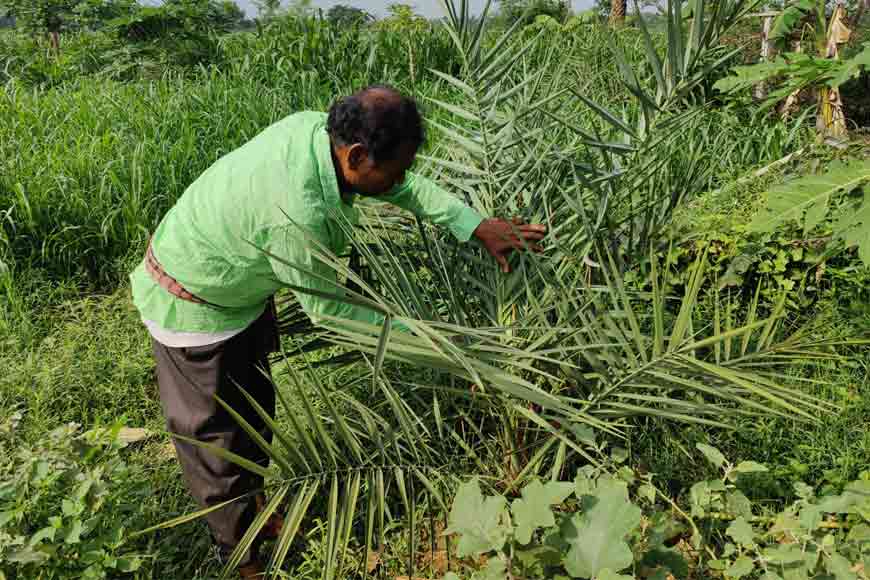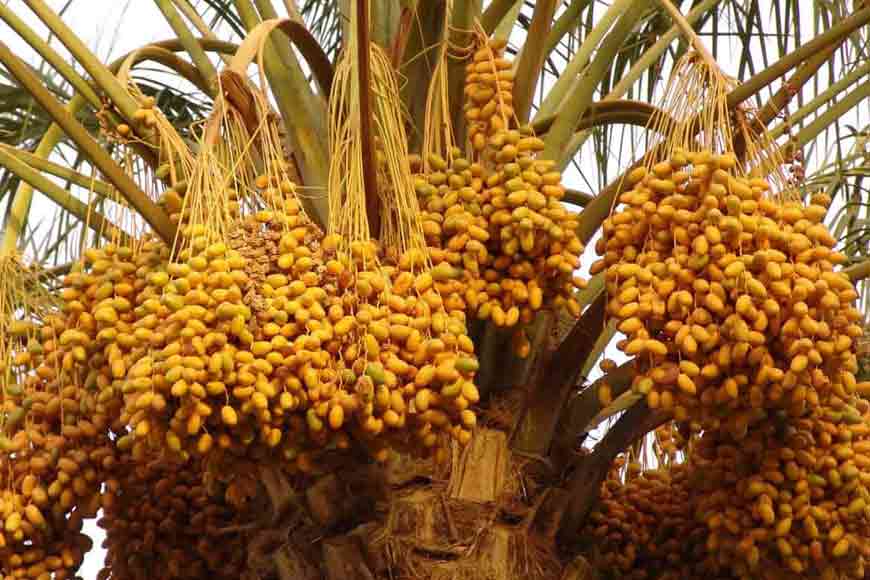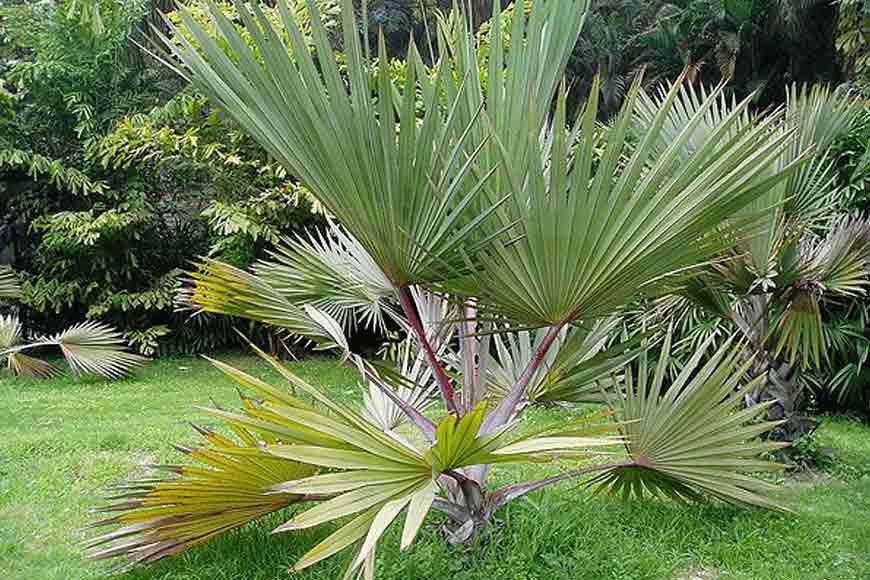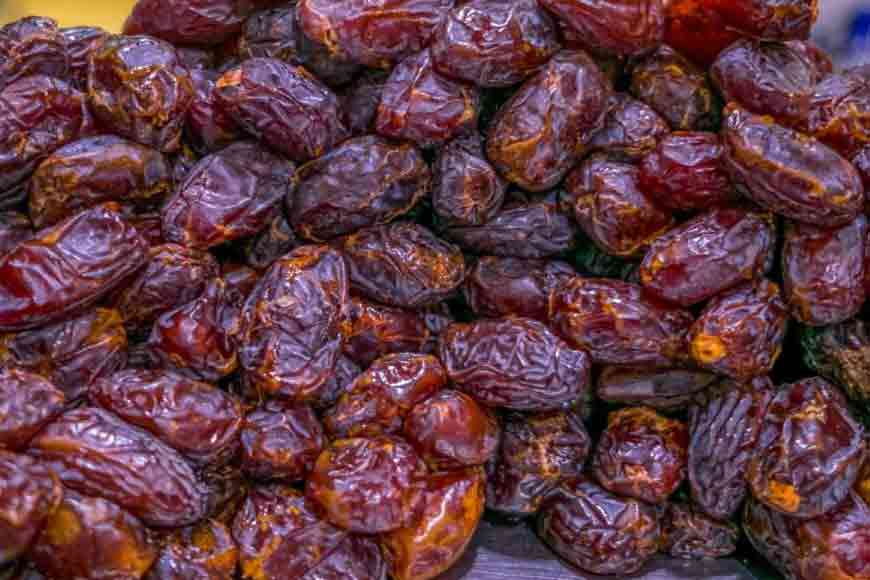UAE Dates cultivated in Katwa successfully brings hope to farmers

FDue to globalization, now we have the opportunity to experience almost everything from every part of the world sitting in the cozy corner of one’s room. Just like other commodities, seeds of different plants which are highly in demand are also transferred from one place to another. Whenever we talk about luscious juicy and sweet dates, we drool over the Saudi Arabian dates or those from United Arab Emirates (Dubai or Sharjah), which are indeed the best in quality and the most demanded ones across the world. Those who love dates know their worth and how difficult they are to buy for the general public due to their skyrocketing price. Currently, a large number of dates are being imported from Saudi Arabia regularly and sold as packaged products in different upscale shopping malls. Imported things cost a lot due to tariffs and taxes. On top of that, the products which are exclusive to a small region tend to cost even more due to the higher demand and lower supply.

However, a farmer in Katwa, West Bengal, was the first to set up a date garden with the aim of producing Saudi Arabian dates. Gopal Mandal has developed a plantation of Arabian palm trees on his two-bigha land (1 bigha = 0.619 acres) on the outskirts of Burdwan’s Katwa. There are over 3000 varieties of date palm trees that exist worldwide. However, not all are cultivated commercially. Among them, Medjool and Ajwa are most common and they are commercially cultivated due to their soft and fleshy nature. The climate is particularly important to date palm production. It necessitates a long summer, a warm winter, no rain during flowering and fruiting, low relative humidity, and plenty of sunlight.
Also read : A fruit from Mexico is changing lives in Bengal
Some trees have already started bearing fruit, while others have got flowers. According to Gopal Mandal, “We are cultivating world-class Medjool and Ajwa dates in our garden. Now the best quality Saudi Arabian dates, which were difficult to purchase, can be bought in local markets and the prices thus will be much less than the imported ones.” The sub-divisional agriculture officer of Katwa praised such an initiative and assured Gopal Mandal and other farmers of full support from their side. Currently, India as a whole is also cultivating dates in different states such as in the states of Gujarat and Rajasthan. Many farmers in other states have started profitable palm cultivation by bringing in seeds or seedlings from Gujarat. Date palm agriculture is practised in India along the coastal belt from Mandvi to Anjar in Gujarat's Kutch and Saurashtra districts. Rajasthan, Tamil Nadu, and Kerala are among the states that grow it. Kutch is India’s major grower of date palms. Always in demand due to their nutritional value, good quality dates fetch considerable prices in the market. They help in regulating bowel movements, reduce heart diseases, reduce blood pressure, promotes respiratory and digestive health, and is rich in iron.

According to local sources, Gopal Mondal, a resident of Hazrapur Colony in Ward No. 3 of Katwa city had first planted date palms as an alternative cultivation. Gopal Babu used to work at Bharat Sanchar Nigam Ltd. (BSNL) and he retired in 2017. He has always been inclined towards farming and gardening. He has six and a half bighas of land under the dam of Ajay River on the outskirts of Katwa, where he has dedicated a tract of 2 bighas of land for date cultivation.
One and a half years ago, Mandal had brought the seeds of Saudi Arabian ‘Ajwa’ and ‘Medjool’ dates from Dubai and Bangladesh. He added organic fertilisers to the land and made the soil suitable for palm cultivation. Dates require well-drained deep sandy loam soils with a pH of 8.0 to 10.0 and should have the ability to hold moisture. The dates can also be grown in saline and alkaline soils with lower yields. He made holes with a distance of twenty feet in between and planted the seeds. And with great labour and patience, a few trees have already borne fruits and flowers. But immediate results cannot be expected as it takes at least five to six years to produce delicious dates like that of Saudi Arabia and the yield would be less in the initial stages. Depending on the variety, dates are eaten at different stages, so the harvesting depends on the local demand. In India, date fruits are harvested at “doka” stage to avoid any damage caused by humidity and rains.
According to Gopal Mandal, “We are cultivating world-class Medjool and Ajwa dates in our garden. Now the best quality Saudi Arabian dates, which were difficult to purchase, can be bought in local markets and the prices thus will be much less than the imported ones.” The sub-divisional agriculture officer of Katwa praised such an initiative and assured Gopal Mandal and other farmers of full support from their side. Currently, India as a whole is also cultivating dates in different states such as in the states of Gujarat and Rajasthan. Many farmers in other states have started profitable palm cultivation by bringing in seeds or seedlings from Gujarat.
Gopal Mandal has spent one and a half lakh rupees so far to bring the seeds and put together suitable soil for palm cultivation. “I took the decision of cultivating dates like that of Saudi Arabia after watching the videos of palm cultivation on YouTube and wanted to try something new that would also fetch good money.”

In order to obtain good-quality dates, it is necessary to fertilize the male palm plants with pollinators at the same time as the flowers of the female plants emerge. Ajwa dates are sold at Rs. 1100 to 1200 per kg in the market and the current market price of Medjool dates is Rs. 400 to 500 per kg. Dates are in high demand during the month of Ramadan and also during different Hindu festivals in Bengal. Hence, Gopal Mandal can look forward to making profits from the date cultivation on the banks of the Ajay River and other farmers can follow suit making Bengal a mini-hub for international date export.










